Adept: The first cleaning and security company to become Living Hours accredited
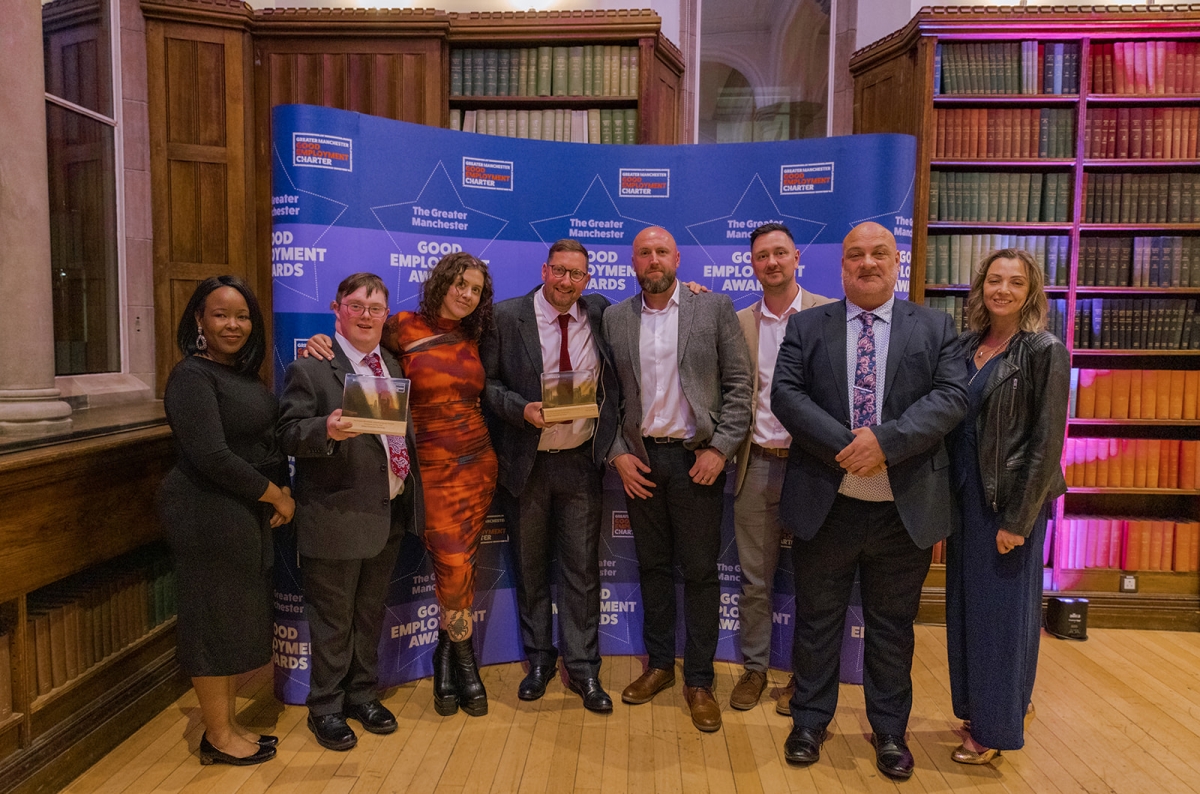
Cleaning and Security services company Adept, were set up with the ethos of paying the real Living Wage from the beginning. In 2017, they became an accredited a Living Wage Employer, and in 2022, they became the first cleaning and security company in the UK to be Living Hours accredited too.
We spoke to Nick Cooper (Managing Director), about their process becoming a Living Wage and Living Hours Employer, the first of their kind in the industry to have both accreditations.
In 2022, Adept became the first cleaning or security business to become Living Hours accredited. The Living Hours standard calls on employers to provide the security of hours alongside a real Living Wage.
“To be honest, we found going through the Living Wage accreditation process a lot easier than going through the Living Hours one. That’s probably because we were already where we needed to be with the Living Wage. It was very straightforward, we demonstrated what we paid our staff, and the accreditation was awarded.
The Living Hours accreditation was a bit more difficult because there’s a few different elements that you have to go through. First of all, in our industry, traditionally people are on zero hours contracts. So when we sat down to look at it, a big chunk of our staff were on zero hours contracts as well.
As much as yes, we were paying people and giving them the tools they needed, they had no security whatsoever. Technically, if a manager was so minded, they could have starved people of work and that didn’t sit well with us.
So we had to review all our employment contracts to meet the Living Hours accreditation requirements. We had some people working full time, some on casual contracts, some working 50 hour weeks who were actually on a 15 week contract because we took them on but never updated their contract.
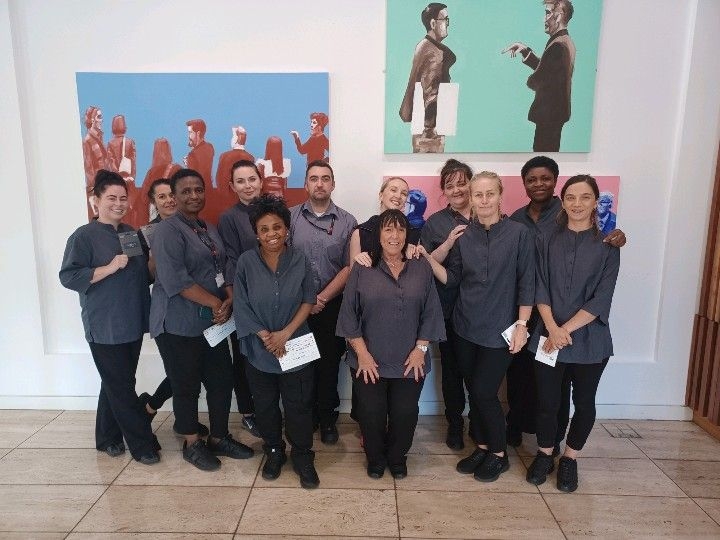
We reissued all our contracts, and we now have a process in place to review them each month. This is to check what the contract says vs what people are actually doing. We don’t want someone’s contract to say they work 40 hours a week, but in reality they’re working 45 hours a week. So we have a process in place for that.
The next element that we needed to look at is the notification of work. Again, we’re in an industry where things change constantly. I think it was eye-opening for us to be more organised, and today we don’t just give four weeks’ notice of work, all our permanent staff can look today and they know what their work will be in 12 months’ time.
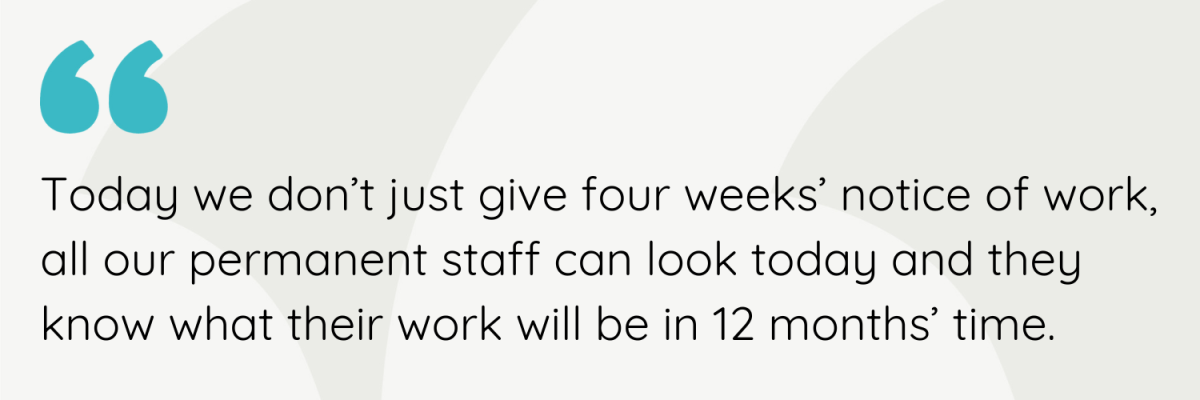
One of our big concerns when becoming a Living Hours Employer, was providing security to our employees. We’re in a very unstable industry and clients will sometimes come to us to say that they don’t want these 80 hours of cleaning or 120 hours of security anymore. That puts us in a position where if we were to guarantee someone those hours every week, its going to cost us and we can’t pass that cost on to anybody.
The reality is that our biggest challenge is resource. So if a client turns to me and says “we don’t need those 80 hours anymore”, I’ve probably got three other clients who want those hours. So the rationale is that we are always going to need good people within the business.”
Reflecting on implementing the Living Hours principles and a real Living Wage, Nick feels it’s been good for business.
“Overall it’s been working really well for us. Part of me was worried it was going to cost us thousands and thousands, but it hasn’t. We looked at our staff team and decided to prioritise security of hours and full-time contracts to the system we had before. It was really beneficial to us.
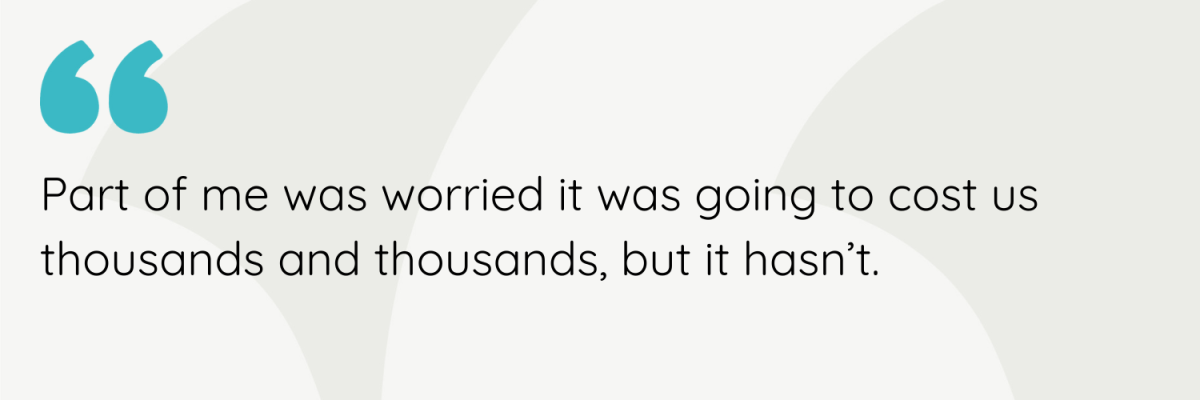
In terms of being a Living Wage Employer, what I can tell you is I’ve never worked for a security or cleaning company with such high retention rates for staff. We’ve calculated that every new starter we bring in costs us around £800 including the training, the uniform and the induction. So the fact that our retention rate is around 94% is a massive hidden saving for us. We’ve also picked up new business because our staff are happy. We reckon we’ve saved tens of thousands from offering the Living Wage and Living Hours.
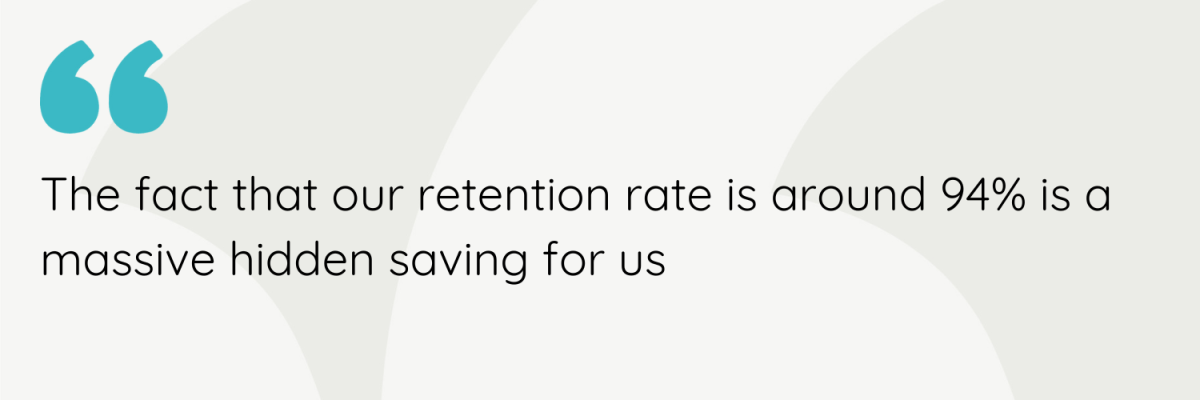

I think a big benefit of paying the Living Wage and providing Living Hours, is the staff morale around it. For example, Olga is one of our cleaners and from the day I met her she was constantly asking for a full-time contract. When we went through the Living Hours process, she was the first person to get her contract, so I took a picture. In the picture she’s holding a bottle of champagne in one hand, and her contract in the other, standing outside Bow House, which is the building that she cleans. When I explained that she now had the contract and what it means, she broke down in tears. I felt really bad, we should have done it sooner. She was always a good employee, but she sort of changed overnight. What I saw from her is that she wanted to give more as well.
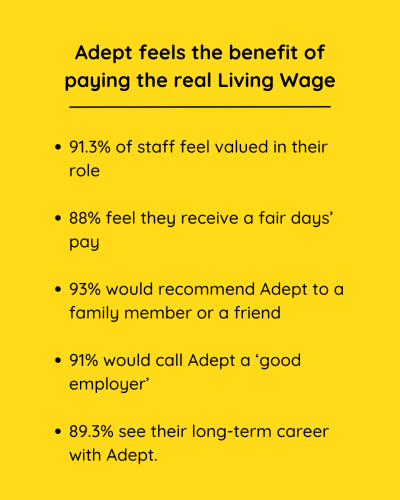
We’ve seen so many benefits of treating our staff so well. More and more clients are coming to us and saying they like working with us because of our commitment to decent pay and hours. We’ve actually not suffered anywhere within the business and I think a big part of that is because our staff are happier, are providing a really good service, and our clients are happy and we’re not getting any terminations. In fact over the last two and a half years we’ve only lost two contracts, and one of them was on a tender process. Despite this, all eight members of staff stayed with the department and we redeployed them into locations where they would still earn the living wage. So we’ve got a really great retention rate, not just with our employees but also with our clients.
We’re a small company in comparison others in our sector, but our USP is that we’ll treat our people well, and therefore good people want to work for us and stay with us – it’s gives us a competitive edge. We give our staff good pay, sick pay, and bonuses. Our employee surveys show how happy our staff are.”
Thinking about what advice Nick would offer to others in the industry, he does feel that Adepts’ experiences are quite unique.
“I speak to a lot of people in the industry who ask us how we managed to become Living Wage and Living Hours accredited Employers, and I’m really open with them. Because we were early adopters of the Living Wage and Living Hours, the actual financial hit to us was potentially quite minimal. I spoke to the CEO of a large security and cleaning company, and they were calculating how much additional they would need to charge. They are Recognised Service Providers and they’re trying to get to where we are today and it would cost them hundreds of thousands if they could not pass that cost on. And a lot of clients, even though they’ll give you the lip service that they want to look after staff, when they see that number, it doesn’t always equate the same. So I understand the pain that a lot of companies do have.
I quite like the fact that we’re unique in offering the Living Wage and Living Hours.
So I really like being unique and different. But I want all of our industry to join the party, because for me there’s more than enough cleaning and security jobs for all companies. And if we could ensure that the industry wasn’t rock bottom, that we’re all paying a real Living Wage and looking after people, then every client is going to have to value it and pay accordingly.”
Find out more about becoming a Living Wage Employer here.
